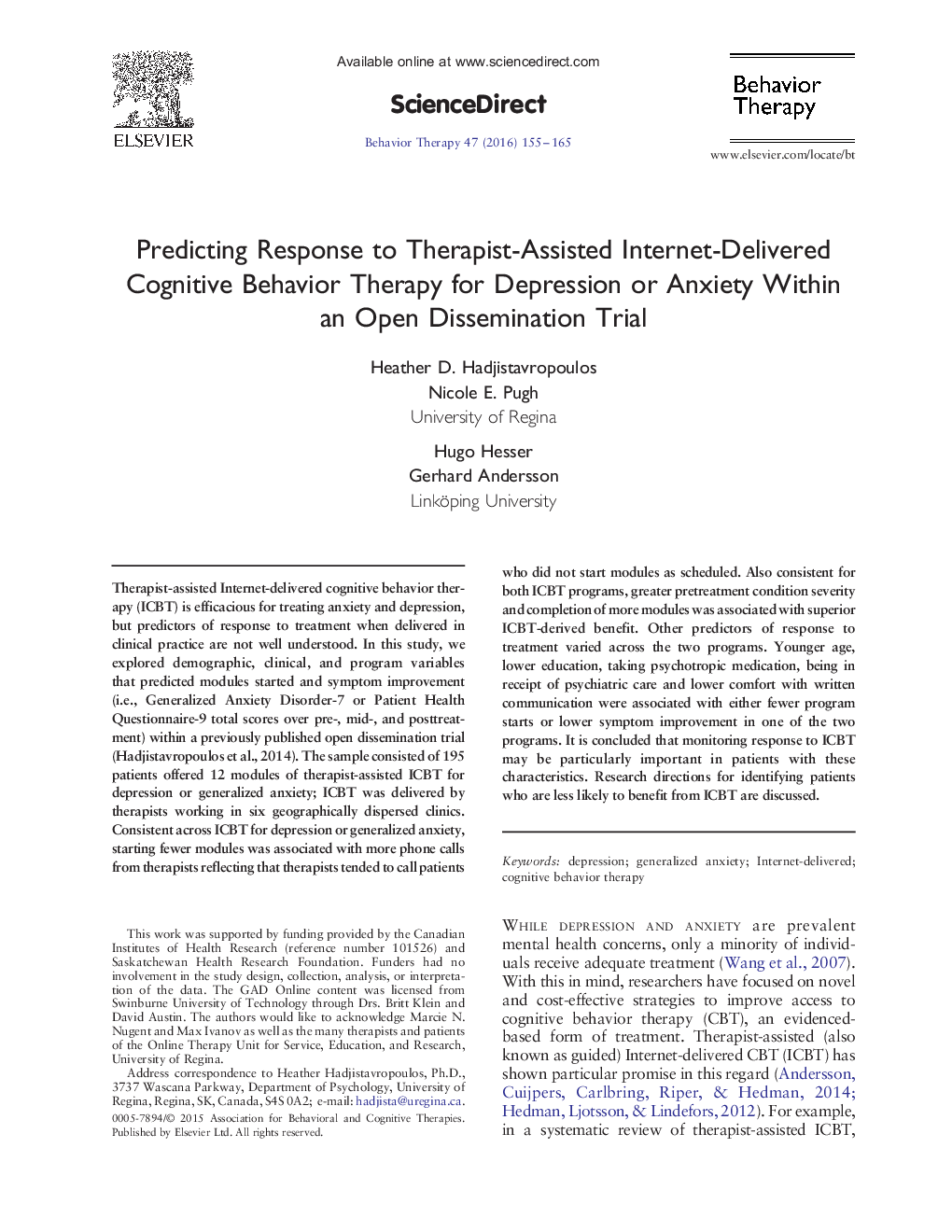| Article ID | Journal | Published Year | Pages | File Type |
|---|---|---|---|---|
| 901183 | Behavior Therapy | 2016 | 11 Pages |
•Predictors of response to Internet-delivered cognitive behaviour therapy (ICBT) were examined.•Demographic, clinical, and program variables predicted response to ICBT to some degree.•Greater depression and anxiety severity was associated with greater ICBT benefit.•Lower ICBT benefit was associated with starting fewer modules and therapist phone calls.•Study findings assist clinicians in predicting patient response to ICBT.
Therapist-assisted Internet-delivered cognitive behavior therapy (ICBT) is efficacious for treating anxiety and depression, but predictors of response to treatment when delivered in clinical practice are not well understood. In this study, we explored demographic, clinical, and program variables that predicted modules started and symptom improvement (i.e., Generalized Anxiety Disorder-7 or Patient Health Questionnaire-9 total scores over pre-, mid-, and posttreatment) within a previously published open dissemination trial (Hadjistavropoulos et al., 2014). The sample consisted of 195 patients offered 12 modules of therapist-assisted ICBT for depression or generalized anxiety; ICBT was delivered by therapists working in six geographically dispersed clinics. Consistent across ICBT for depression or generalized anxiety, starting fewer modules was associated with more phone calls from therapists reflecting that therapists tended to call patients who did not start modules as scheduled. Also consistent for both ICBT programs, greater pretreatment condition severity and completion of more modules was associated with superior ICBT-derived benefit. Other predictors of response to treatment varied across the two programs. Younger age, lower education, taking psychotropic medication, being in receipt of psychiatric care and lower comfort with written communication were associated with either fewer program starts or lower symptom improvement in one of the two programs. It is concluded that monitoring response to ICBT may be particularly important in patients with these characteristics. Research directions for identifying patients who are less likely to benefit from ICBT are discussed.
